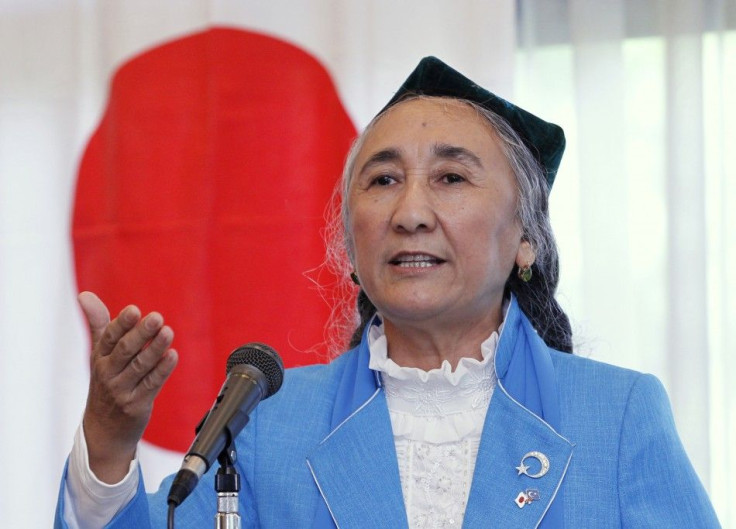World Uyghur Congress In Tokyo Draws Condemnation From China

Japan has allowed the World Uyghur Congress (WUC) to meet in Tokyo on Monday, drawing renewed anger from China.
Chinese news agencies also report that Rebiya Kadeer, the head of the WUC, has also taken the occasion to visit the Yasukuni Shrine, dedicated to honoring Japan's war dead -- a controversial act because the temple honors deceased soldiers including 14 Class-A war criminals from World War II and is considered in China and South Korea to be a symbol of Japan's past military aggressions.
The WUC is a Munich-based group that serves as a government-in-exile style organization for exiled Uyghurs, a Turkic-speaking Muslim minority residing in Western China's Xinjiang Province, which it calls East Turkestan. This is the first time it has ever met in an Asian country.
The WUC claims that Beijing's rule is destroying Uyghur culture and the ethnicity's existence as a unique indigenous people. The group describes itself on its website as a promoter of democracy, human rights and freedom for the Uyghur people that uses peaceful, nonviolent, and democratic means to determine their political future. It says it is the sole legitimate organization of the Uyghur people both in East Turkestan and abroad.
The Chinese government calls the group a separatist organization bent on splitting apart the country and breaking the internal harmony of China. Beijing says it has evidence of the WUC's collusion with numerous terrorist groups and its involvement in inciting riots in July 2009 in Xinjiang that led to the death of nearly 200 and injured more than 1,700 ethnic Uyghurs and Han Chinese.
Around 120 supporters of the WUC from Japan, Turkey, and Germany arrived at the meeting, during which Kadeer requested the Japanese government to raise with Beijing the subject of Chinese human rights violations against Uyghurs, Tibetans, Mongols, and Han Chinese themselves.
Japanese participants included Takeo Hiranuma, head of the Sunrise Party in Japan (known domestically as Rise Up, Japan!), which has received the support of controversial Tokyo governor Shintaro Ishihara, who has often inserted himself in diplomatic controversies between China and Japan by making provocative anti-Chinese statements.
Toshio Tamogami, dismissed in 2008 from his post as the Chief of Staff of Japan's Air Self-Defense Forces for publishing an essay denying Japan's role as an aggressor in WWII -- the essay originally stated that Japan had been drawn into the war by the U.S. and China under the manipulation of international Communist organizations -- was also in attendance.
China stated on Monday that the the WUC and terrorist organizations have innumerable ties, and that it expressed strong disapproval of Japan's allowing of the congress. Xinjiang issues are a part of Chinese internal politics, and we will not tolerate involvement by any external party, said the Chinese Foreign Ministry. The Chinese government called Kadeer's visit to Yasukuni a sign of collusion between WUC separatists and the Japanese right-wing to break up China and damage Sino-Japanese relations.
Visits by Japanese politicians and prime ministers to Yasukuni in previous years have been cause for China to break off diplomatic exchanges and important talks with Tokyo; however, the move has generated support among nationalistic voters in Japan wary of the military growth of China.
The WUC met in Tokyo even as Chinese President Hu Jintao, Japanese Prime Minister Yoshihiko Noda, and South Korean President Lee Myung-bak were meeting in Beijing for major trilateral discussions on mutual trade and environment protection. The three countries are using the occasion to set the foundations for future talks on establishing a possible trilateral Free Trade Zone.
Japanese media has reported that Hu has snubbed a separate meeting with Noda at trilateral talks, though he did meet with Lee.
© Copyright IBTimes 2024. All rights reserved.










